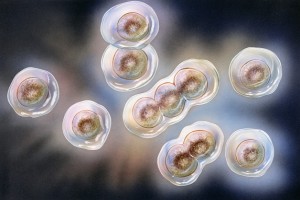 Breast cancer is one of the most prevalent cancer types affecting women. Established risk factors of the disease include a family history of breast cancer and prolonged exposure to estrogen such as the case with late menopause and history of benign breast lumps. The risk of developing the disease may be reduced through dietary and nutritional modifications. [1]
Breast cancer is one of the most prevalent cancer types affecting women. Established risk factors of the disease include a family history of breast cancer and prolonged exposure to estrogen such as the case with late menopause and history of benign breast lumps. The risk of developing the disease may be reduced through dietary and nutritional modifications. [1]
In a study conducted in Malaysia, higher concentrations of tocotrienol are found in fatty breast tissue of women with benign breast lumps as compared to those with malignant breast tumors suggesting tocotrienol’s role in reducing the risk of developing breast cancer in these women.[2]
In a pre-clinical study conducted on estrogen-positive and -negative breast cancer cell lines, tocotrienols when administered together with the standard breast cancer drug tamoxifen, enhances the anti-cancer effects of the latter suggesting tocotrienol’s potential in treating certain types of breast cancer. [3]
Further, scientists from Davos Life Science have shown that treating breast cancer cells with tocotrienol induces cell death (apoptosis) and suppression of key proteins in cancer progression such as Id1 and NF-кβ. Interestingly, a synergistic effect was observed when breast cancer cells where treated with a combination of tocotrienol and the anti-cancer drug docetaxel. [4]
Read Top Articles
1. Ingram DM, E Nottage, and T Roberts. The role of diet in the development of breast cancer: a case-control study of patients with breast cancer, benign epithelial hyperplasia and fibrocystic disease of the breast. Br J Cancer, 1991;64(1):187-91.
